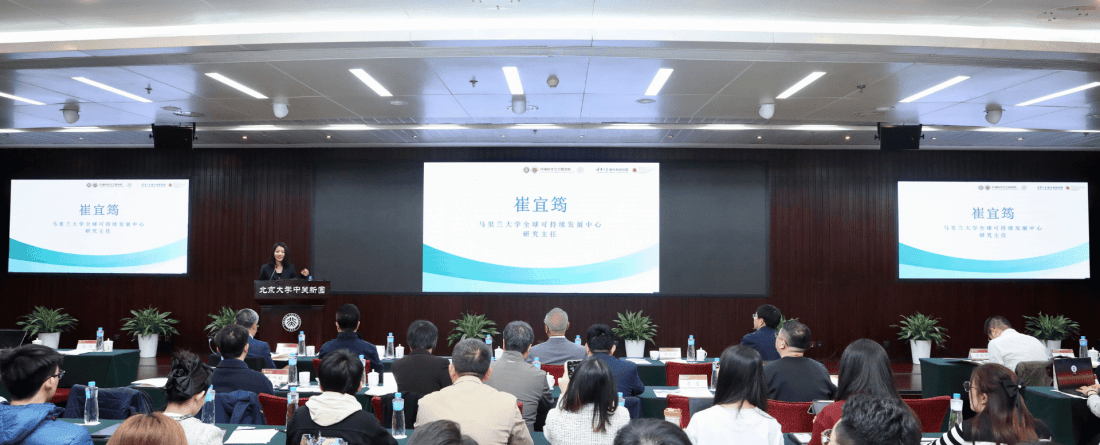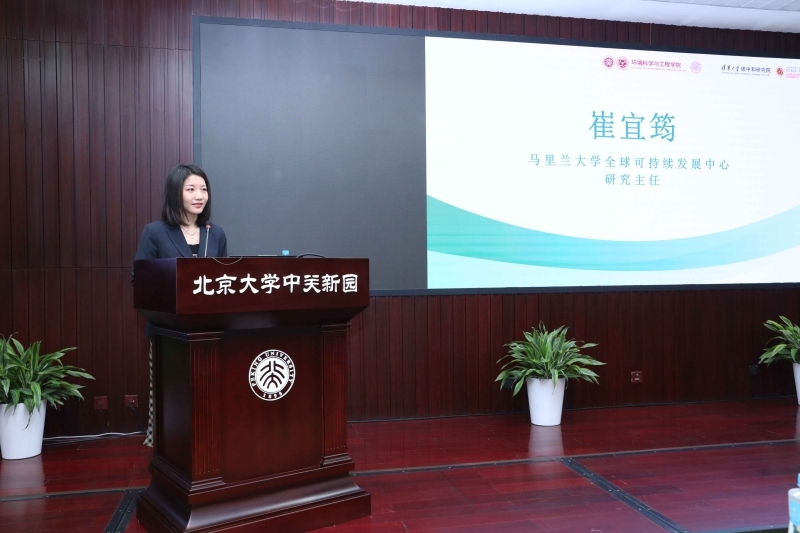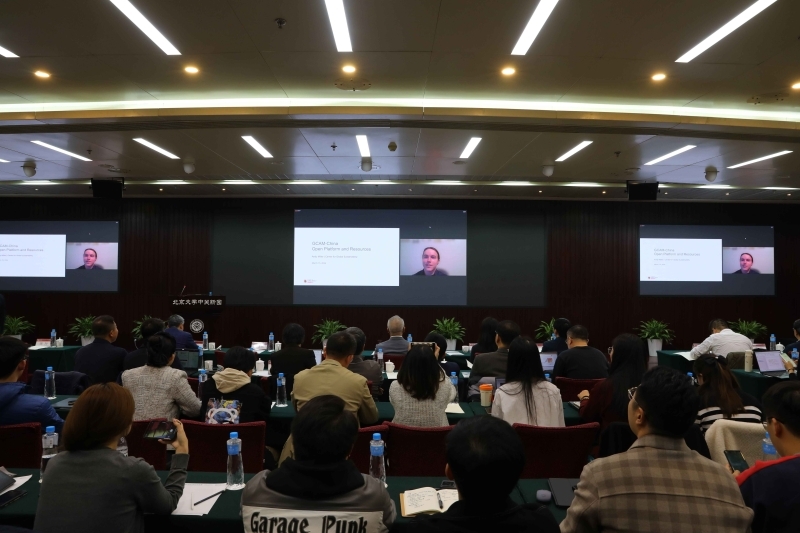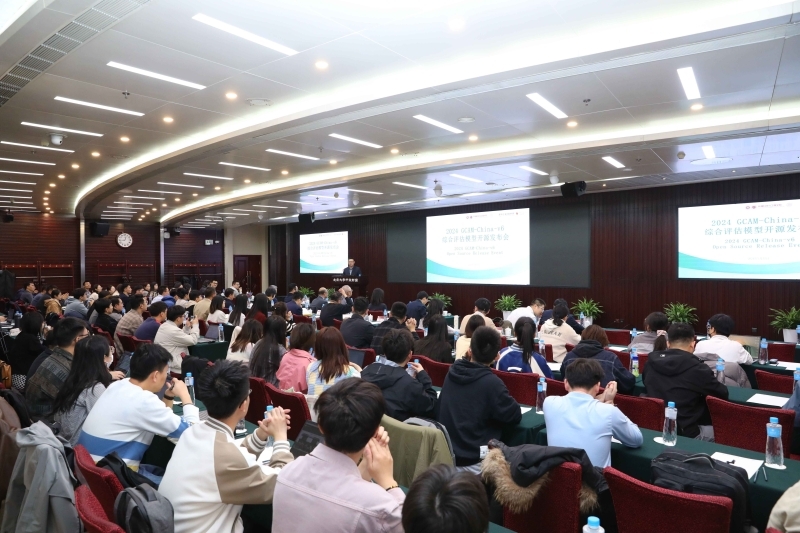
On Friday, March 15, 2024, the Center for Global Sustainability (CGS) in partnership with Peking University School of Environmental Science and Engineering and Tsinghua University Carbon Neutrality Research Institute, celebrated the launch of GCAM-China-v6 in Beijing, China. CGS Research Director and China Program Director Ryna Cui was in attendance to kick off this advancement in modeling ambitious climate research and policy in support of global climate goals.
The launch of GCAM-China-v6, an open-source model, celebrates dedicated, deep collaborations between multiple U.S. and Chinese research teams over more than a decade, a true, successful example of U.S.-China climate cooperation. The GCAM-China community aims to facilitate efficient, inclusive, and open academic exchange, fostering experience sharing, academic progress, and technological innovation. This initiative, maintained by voluntary organizations, serves as a vital and comprehensive tool for domestic and international academic research and policy development.
"We are excited to be a part of this transformative initiative and build upon a shared US-China community of expertise on energy, climate, and development strategies," said CGS Research Director Ryna Cui, who was present at the launch event. "This partnership highlights our shared dedication to advancing climate research and effecting meaningful change."
During the launch event, CGS Research Associate Andy Miller tuned in virtually to present the GCAM-China-v6 open platform and resources. CGS is proud to host GCAM-China-v6 on our GitHub repository and work with Tsinghua University and Peking University to support U.S.-China research collaboration in the wake of the “Sunnylands Statement on Enhancing Cooperation to Address the Climate Crisis,” underscoring the renewed commitment of both countries to addressing the global climate crisis through cooperative efforts.
The launch event convened over 100 attendees in person and attracted upwards of 10,000 online viewers, emphasizing the dedication and enthusiasm of the international scientific community toward advancing climate research and policy development.
"Countries around the world are working to better understand opportunities for new technologies and enhanced policies to achieve climate, energy, economic, and other societal goals," said CGS Director Nate Hultman. "CGS is committed to constructive U.S.-China research collaborations, facilitating dialogue, and catalyzing positive action in our respective countries and globally— this new, sophisticated, and open-source modeling tool will be an important means toward a broader understanding of China’s emissions trajectories across all sectors and greenhouse gasses at the national and provincial levels."
The launch of GCAM-China marks a significant milestone for the CGS China Program, which supports a shared US-China community of expertise on energy, climate, and development strategies. The CGS China Program supports this goal through an enhanced understanding of China’s opportunities, China’s role in delivering global 1.5ºC pathways, potential opportunities with other key countries, and supporting enhanced U.S.-China research collaborations—and through our research to support enhanced global understanding.
GCAM-China-v6 stands as a testament to over a decade of collaborative research and development efforts. CGS remains committed to further enhancing cooperation with our partners to support global climate goals.






